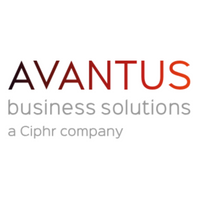6 ways HR can turn socials, hobbies and shared interests into strategic benefits
From fun to fundamental - summer games, team lunches, away days, and team bonding have evolved from “just for fun” into powerful tools for engagement, inclusion and retention. Here’s how to get it right.
Summer is here, and many workplaces are planning picnics, sports days, quizzes or team drinks. For years, these activities have sat outside the “serious” world of employee benefits - seen as optional, light-hearted add-ons rather than part of the package.
But that’s changing. In today’s climate of hybrid work, employee burnout, and growing demand for inclusive cultures, employers are increasingly framing social activities and shared hobbies as an integral part of the benefits they offer.
HR and reward leaders are rethinking the value of these initiatives - not just to fill the calendar, but to deliver on their promise of supporting wellbeing, fostering inclusion, and strengthening employee connections.
Why connection belongs in the benefits package
When employees feel connected, they’re more engaged, loyal, and likely to thrive. But with hybrid working reducing day-to-day interactions, those informal moments of connection are harder to come by.
Only 10% of UK employees feel engaged at work, according to Gallup’s State of the Global Workforce report (2025) — one of the lowest rates globally.
Reward Gateway’s Workplace Connection Report (2023) shows why this matters: employees with a social network at work are more than twice as likely to rate themselves as very productive, and around a third say that having the time and space for non-work conversations with colleagues would help them feel more connected.
Well-connected teams — with strong communication, collaboration and peer support — aren’t just happier; they’re more productive, more resilient, and stronger on wellbeing.
How to make socials and hobbies a meaningful benefit
If you want employees to see these initiatives as part of their overall benefits - and not just an afterthought - here’s how to approach them strategically:
- Build them into the benefits narrative: When you communicate your benefits package, include a section about social, wellbeing, and hobby-based opportunities - making it clear these are employer-funded, inclusive, and open to all.
- Offer variety and choice: Not everyone wants to play football or go to the pub. A robust programme might include craft clubs, book groups, photography, cooking, mindfulness sessions, volunteering, and outdoor activities - alongside more traditional socials.
- Make it inclusive: Avoid assumptions that everyone drinks alcohol, can travel to a venue after hours, or is comfortable with competitive activities. Gather employee input and design activities that reflect the diversity of your workforce.
- Allow flexibility: Some employers offer an allowance that employees can use to join or start their own hobby-based group enabling them to connect with colleagues on their own terms.
- Align with your company values: Choose activities that reflect and reinforce your organisation’s purpose and culture. For example, if sustainability is a core value, offer volunteering days with environmental charities, outdoor clean-up events, or gardening clubs. If innovation is central, consider creative workshops or hackathons. This ensures employees see the initiatives as authentic and meaningful - not just calendar fillers.
- Measure and celebrate impact: Track participation, gather stories, and highlight how these activities contribute to engagement, mental health, and retention - helping you make the case for continued investment.
Strike while it’s summer
The summer months are the perfect time to reframe connection-based activities as a benefit: employees are more open to getting outside, meeting colleagues, and trying something new. But the impact goes beyond a single season.
With hybrid working now commonplace, the need for intentional, meaningful connection is more critical than ever. Done well, these initiatives help employees feel a sense of belonging and pride — two of the strongest drivers of retention and performance.
So, this summer, instead of asking, “What shall we do for the team?”, ask: “What kind of connections do we want to foster, and how can we make them a meaningful benefit to everyone?”
When employees experience connection as a core benefit - not just an added bonus - they’re far more likely to engage, commit and contribute their best.
Supplied by REBA Associate Member, Avantus
Flexible Benefits & Technology specialist providing online, highly configurable platforms to Customers and Intermediaries worldwide.








